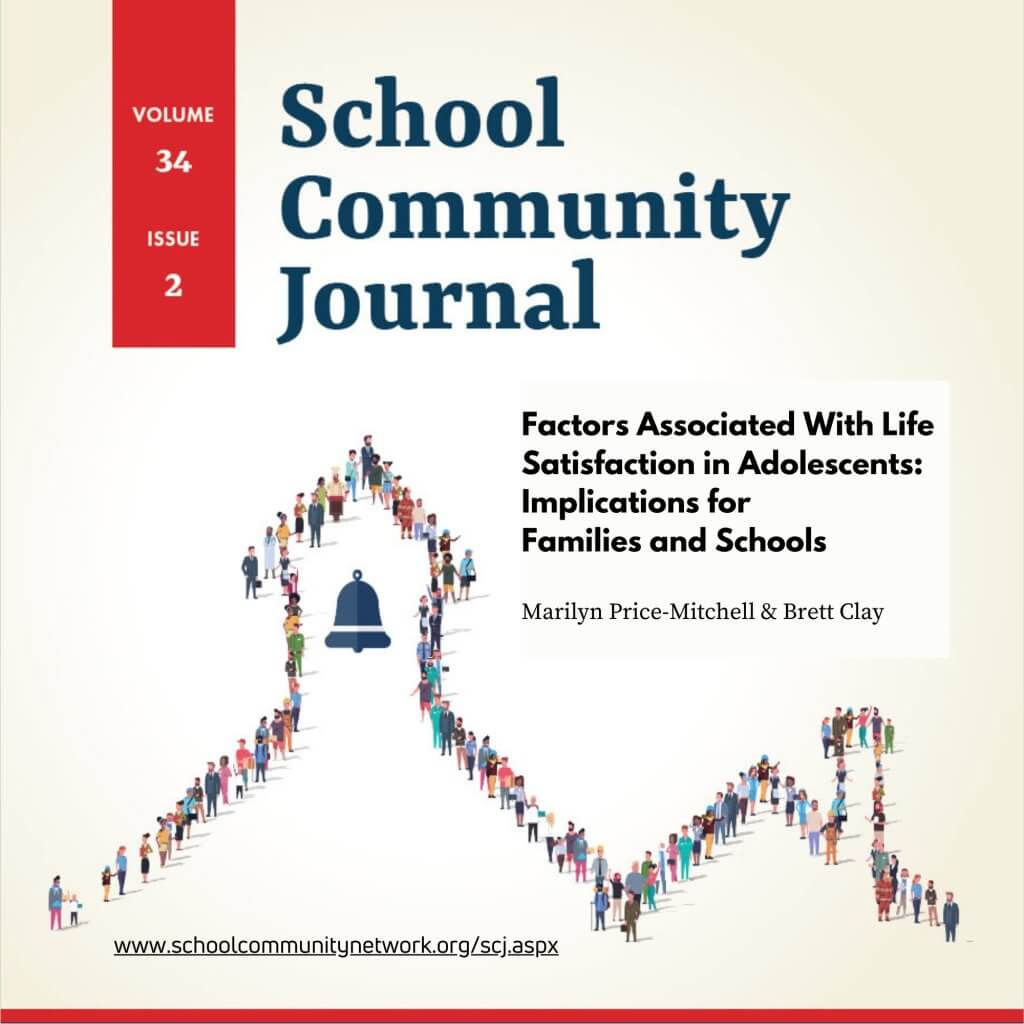Life satisfaction in adolescents is more important than you may think. Our latest research shows that a child’s internal strengths are more highly correlated with life satisfaction than grade point average. So why do we focus so exclusively on grades when a child’s developmental attributes are associated with better mental health and overall life outcomes? Read about our 2024 research study “Factors Associated With Life Satisfaction in Adolescents: Implications for Families and Schools,” published in the School Community Journal.
Abstract
Research shows a decline in U.S. adolescent mental health over several decades. It also suggests that higher levels of life satisfaction lead to better mental health outcomes in this population.
The purpose of this study was to investigate correlations between adolescent life satisfaction and eight developmental attributes that can be fostered by families and educators —curiosity, creativity, empathy, integrity, resilience, resourcefulness, self-awareness, and sociability. Correlations were also examined for grade-point average (GPA), gender, and grade level.
The study hypothesized that young people who rated themselves highly on the eight developmental attributes would also score higher in life satisfaction, regardless of GPA. Quantitative survey research was used to investigate the correlations between these constructs and life satisfaction in U.S. eighth and ninth graders (N = 602) attending public schools in two Midwestern states.
Self-awareness, resilience, and resourcefulness were most highly correlated with life satisfaction. Moderately strong correlations were obtained for sociability, curiosity, and integrity. GPA and empathy were the lowest correlates of life satisfaction among measured factors. Adolescent males were almost twice as likely to report very high life satisfaction compared to their female counterparts.
These findings should expand the goals of family–school partnerships beyond raising academic performance to insure that all children enjoy the relationships and relational experiences that help them attain life satisfaction and more positive mental health outcomes.
Article Summary
Research suggests that when teens have high life satisfaction, they have better mental health outcomes, including less depression, anxiety, and social challenges. The purpose of this study was to explore the relationship between life satisfaction and Price-Mitchell’s (2010, 2015) research that led to the creation of The Compass Advantage framework and its eight constructs: curiosity, creativity, empathy, integrity, resilience, resourcefulness, self-awareness, and sociability. We also examined the correlations between life satisfaction and grade-point average (GPA), gender, and grade level.
This study clearly defines each developmental construct from multidisciplinary research, including its value to individuals and society. These conceptualizations, outlined in a comprehensive literature review, helped design a survey for quantitative analysis.
Following a correlation analysis, the authors review the data and summarize its implications for families and schools. The authors suggest that family-school partnerships must focus equally on educational and developmental equity. Educational equity seeks to raise academic performance for all children, especially those impacted by race and income. Developmental equity is the right of all children to enjoy the relationships and relational experiences that help them attain life satisfaction and well-being.
The authors suggest that children become highly satisfied with their lives when families and schools achieve dual goals: develop children’s internal attributes and encourage their educational achievement. Both must exist in tandem for children to thrive.
Full Article
Read the full article in the School Community Journal (PDF)
APA Citation
Price-Mitchell, M., & Clay, B. (2024). Factors Associated With Life Satisfaction in Adolescents: Implications for Families and Schools. School Community Journal, 34(2), 53-86.
Related Articles You May Enjoy
Successful Kids Need 8 Core Abilities: How to Parent With Purpose
The Compass Youth Survey
The Youth Survey, part of our 2024 research study, is free for young people between the ages of 10 and 17 and is often used by classroom teachers to help students understand their internal strengths.

